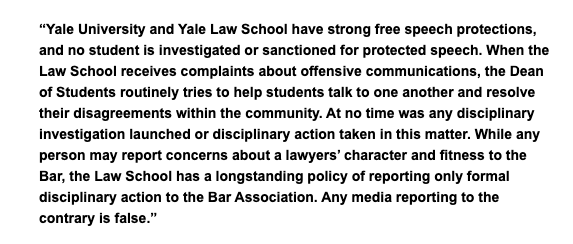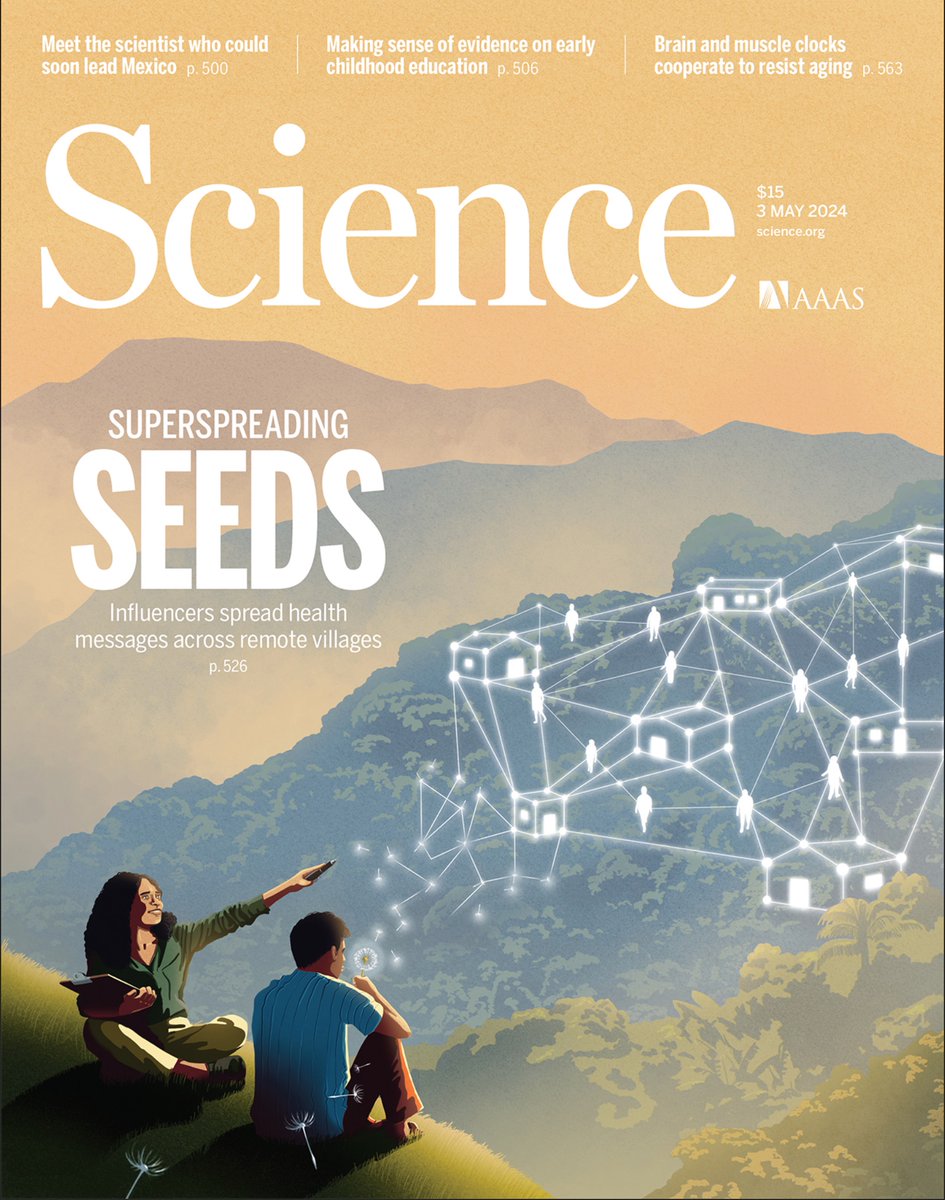Blow by blow of appalling administrator behavior via @TheFIREorg: 'When Colbert hadn’t apologized, Cosgrove sent an email to Yale Law’s entire second-year class to “condemn in the strongest possible terms” the assertedly “pejorative and racist language.”' thefire.org/how-yale-law-s…
Such a public email, at odds with the facts, is indeed an administrative sanction of the student, and was unwarranted. This indicates the falsity of the claim by this elite law school that 'nothing was done' to the student.
I am confused because Yale Law School says "at no time was any... disciplinary action taken in this matter" but the deans required meetings and they sent an email to all of the student's peers falsely claiming his email was racist and "condemning" him and "addressing" his actions 



Any normal person would experience what this student was put through as a disciplinary act and as threatening. Just imagine if the police had a defendant in custody and acted this way (a hypothetical which should not be obscure at a law school).
Today, Yale Law School releases the attached statement. What I cannot understand is: 1) the lack of more forceful *acts* to protect free expression, 2) the claim that facts in this case are "partial" when there is tape, and 3) the sudden concern for proper law-like procedures. 

Could not the members of the Diversity Office also have originally done this: "I will not, however, act on the basis of partial facts reported out in a charged.. environment, as that would be a disservice both to members of our community and to the norms of our profession."
Let's just observe this indisputable fact: a *dean* at Yale Law School drafted (unasked) an apology note for a student to sign and tried to pressure him into doing so. This is the sort of act we roundly condemn when the police or totalitarian governments engage in variants of it.
More cogent analysis of this case (reflecting many of my own thoughts, too) via @BenjaminBadejo
https://twitter.com/BenjaminBadejo/status/1449164445566046211
Yale law student said that 'the media had constructed a “narrative of victimhood that privileges the reputation of the Federalist Society and the veneer of free speech over the emotional and physical well-being of students and administrators of color.”' yaledailynews.com/blog/2021/10/1…
If Yale law students think that written words (especially like those at issue here, for which there is no evidence of racism anyway) can threaten their "emotional and physical [!] well being," they will have a hard time being lawyers. This safetyism culture is corroding.
This case is absurd. Colbert's persecutors are circling the wagons because they are in the wrong. The record includes emails and audio tape. Colbert is owed an apology by his peers and, most important, by the Yale administration that has misrepresented this case from the outset.
Yale Sterling professor of law, Roberta Romano, noted that the administration's actions are "in direct and total conflict with what you stated." "Please correct the record," she added. "I would not want to have to do it for you." freebeacon.com/campus/convuls… via @aaronsibarium
The claim appears to be that, since the student who inadvertently caused offense didn't feel obliged to apologize or converse on terms offered by the offended, they had no choice but to denounce him to authorities? nhregister.com/news/article/Y… This strikes me as petulant and immature.
More analysis of the Yale Law School case, via @aaronsibarium. "Yale is sending the message that referring to Popeyes chicken and ‘trap house' might be punishable and maybe even illegal," @VolokhC said. freebeacon.com/campus/we-have… 

"If ‘harassment' can be something as mild as that, then expressing views some find offensive will be even more clearly harassment."
What Yale administrators should have done is tell the complaining students that there was no perforce evidence of harassment and stop right there.
What Yale administrators should have done is tell the complaining students that there was no perforce evidence of harassment and stop right there.
I am pleased to see that my concerns in this case are shared by others on the left, including @BrianLeiter and Martha Nussbaum, let alone commentators on the right. Defending free expression should not be seen as ideological.
This essay, by Trent Colbert at @Yale Law School via @JoinPersuasion, is extraordinary.
"I don’t believe that the now-common ritual of compelled apology, complete with promises to “grow” and “do better” helps anyone, or is even intended to."
persuasion.community/p/why-i-didnt-…
"I don’t believe that the now-common ritual of compelled apology, complete with promises to “grow” and “do better” helps anyone, or is even intended to."
persuasion.community/p/why-i-didnt-…
• • •
Missing some Tweet in this thread? You can try to
force a refresh














